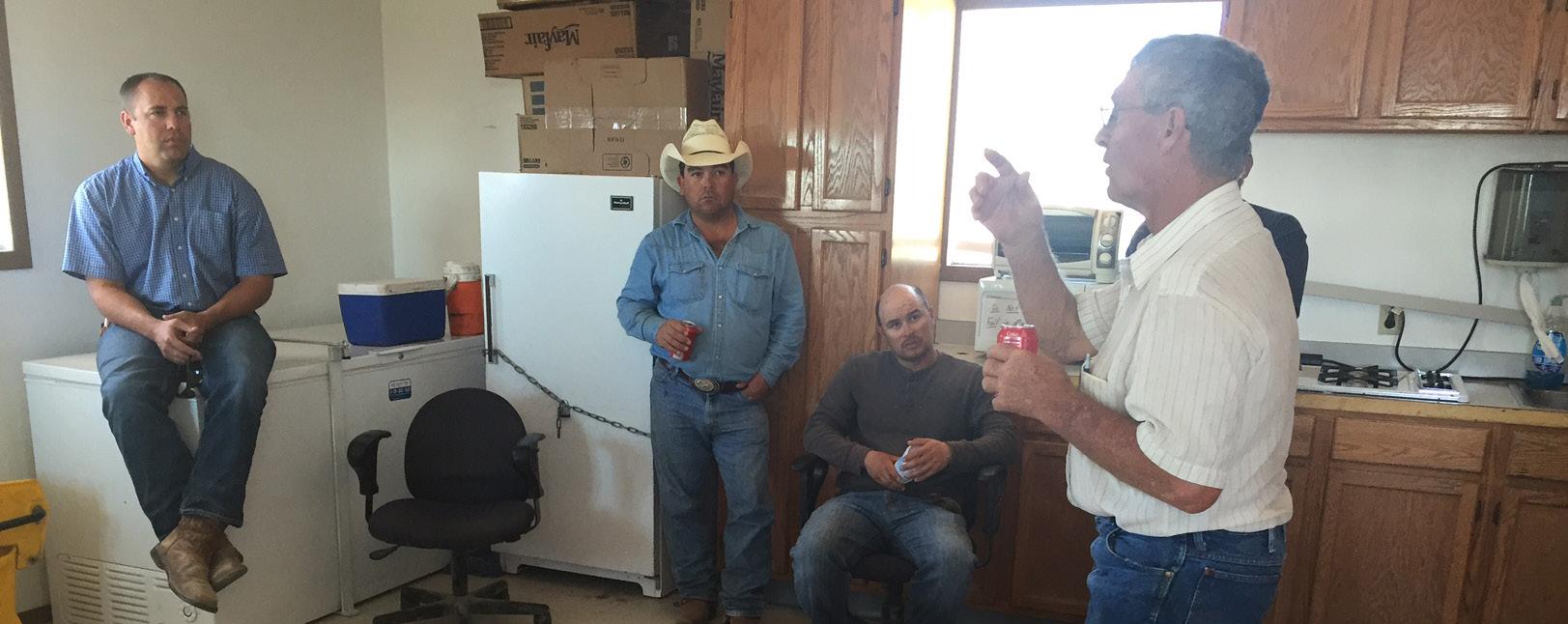
2 minute read
Are You a Strong Leader?
By: Quint Finney, Business Management
In previous articles we’ve discussed the difficulties of attracting, developing, and maintaining staffing levels at the feed yard. We’ve also discussed the importance of employee engagement, communicating the purpose of the organization, and the culture of the organization.
In this article, I would like to focus on what may be the most important point in achieving the above: leadership.
It has been said that everything rises and falls on leadership. It is also said that any organization takes on the reflection of its leader. If these statements are true, then why do so few organizations dedicate the time and resources necessary in developing their management team in terms of effective, productive leadership? It is, no doubt, the nature of the business to sometimes have more to accomplish in a day than seems reasonably possible. However, there is no question that effective leadership makes not only these times more manageable, but will increase production and efficiency during normal operating conditions.
To successfully execute the responsibilities of management in the feed yard to the greatest extent possible, managers must possess strong leadership skills. These skills may be the most valuable asset that a manager can possess. Understanding that people want to be involved in the process and teaching the purpose of the task at hand are not only excellent leadership characteristics but they lend well in developing others within the workforce and increase efficiency and productivity.
Strong leaders recognize and strive to enhance potential within their organization. They take a personal interest in the success of those they lead and they recognize that the success of the organization is largely dependent upon that success.
Successful leaders set the example. Effective leaders consistently set good examples, both on the job and off.
It may be the most important thing a leader can do. They will continually demonstrate that that they are willing and capable of carrying out the tasks that are requested of their subordinates. They continually place emphasis on efficiency, productivity and teamwork. Effective leaders maintain professionalism yet remain approachable.
Strong leaders set the pace. Well thought out, structured planning is crucial to the operation. Without it, efficiency and production suffer at all levels. Personnel need and should be able to expect managers to give clear, concise instruction pertaining to carrying out tasks within the operation. Good leaders will have defined objectives and expectations, as well as a system for measuring results, and consistently communicate them to the crew.
Effective leaders are continually building the team. Two of the most important factors in business are the ability to effectively deal with people and the ability to communicate. These two factors go hand in hand. Most employees want to understand why we do what we do.
The best leaders recognize this and act accordingly. They understand the importance of soliciting feedback from the crew concerning operational issues. They recognize that the people doing the job day in and day out will have some good ideas that lend well to increased efficiency. They understand that it is vital that employees recognize the importance of their contributions and the impact of those contributions pertaining to cattle performance. They understand the importance of building strong, effective professional relationships. This attitude creates ownership in not only the completion of tasks, but in the outcome as well.
Strong leadership is crucial to the success of any organization. Productivity and efficiency have always been important factors in our business, but with current market conditions they are more important than ever. Markets will change, and when they do, the best led organizations will benefit the most.










